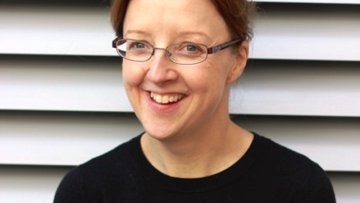On a probabilistic interpretation of the parabolic-parabolic Keller Segel equations
Abstract
The Keller Segel model for chemotaxis is a two-dimensional system of parabolic or elliptic PDEs.
Motivated by the study of the fully parabolic model using probabilistic methods, we give rise to a non linear SDE of McKean-Vlasov type with a highly non standard and singular interaction. Indeed, the drift of the equation involves all the past of one dimensional time marginal distributions of the process in a singular way. In terms of approximations by particle systems, an interesting and, to the best of our knowledge, new and challenging difficulty arises: at each time each particle interacts with all the past of the other ones by means of a highly singular space-time kernel.
In this talk, we will analyse the above probabilistic interpretation in $d=1$ and $d=2$.


